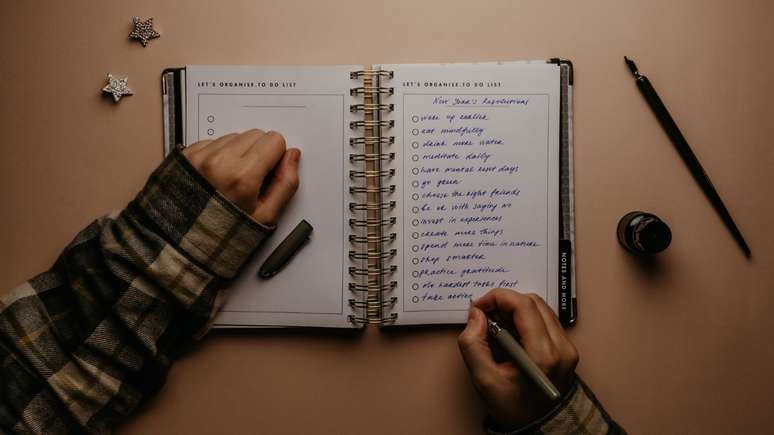This moment encourages people to seek psychological support, take care of themselves and value self-care, thus contributing to a healthier and more balanced start to the year
By the end of the month we will be in White January and this is the time that encourages people to seek psychological support, take care of themselves and value self-care and self-knowledge, thus contributing to a healthier and more balanced life. beginning of the year. And this is also the time when people focus on achieving their goals, which needs to be done in a healthy way. Therefore, we talked to the psychologist Cleo Holland to give you some advice on how to take everything lightly.
Main factors influencing mental health
There are some triggers that affect people’s minds in January, such as stress caused by work decisions. New Year’sunrealistic expectations, social pressure to have a perfect year, and often, reflection on the previous year’s unrealized accomplishments resulting in frustration.
What signs indicate the need for more care?
Loss of performance and productivity; persistent feelings of sadness, discouragement and emptiness; difficulty in dealing with stress and daily pressure, in daily emotional management; strong resistance to change; loss of appetite and sleep – or the opposite of both – social isolation, loss of interest in enjoyable activities and the desire to be alone and isolate are some of the signs that mental health needs attention. These also include greater self-criticism and beliefs of uselessness, failure and incompetence, difficulty concentrating and making decisions. According to the expert, “every pathological condition must be taken into consideration when it begins to affect a person’s daily life”.
How to set realistic goals?
First, it is important to understand that a goal is anything you can achieve, as it is something that depends on you. So Hollanda gave him some advice so he could make it happen.
- Realistic goals: “These goals must not compromise our mental health and must be realistic. They must be specific, measurable and clear. They must also be divided into phases, whether daily, short, medium or long term”.
- Flexibility: “The person must be open to adaptations as life presents them with certain situations. Change the itinerary, but don’t change the destination. Prioritize self-care, trying to balance personal performance and mental health”.
- Celebration: “Finally, let’s celebrate the small achievements, recognizing the progress. Because by making today the best day of our lives and celebrating the small steps, it will make it easier for us to achieve great results in the future”.
Tips for controlling anxiety and avoiding frustration
If anxiety strikes you or you feel frustrated, the professional has also left you some advice to put into practice.
- Physical exercises: “Investment in physical activities for emotional problems. It is known from science that aerobic exercises help deal with fears, anxiety, anguish and stress”.
- Limits: “Recognize your abilities and know how to say no. This helps regulate anxiety and personal pressure”.
- Your feelings: “Finally, start an internal dialogue or talk to other people around you about your feelings. It is very important to externalize what you feel, talking is one of the regulators of anxiety”
- Action plan: “It is important to structure goals and establish a scale of priorities and develop a healthy and positive mindset, restructuring dysfunctional thoughts and exchanging them with positive actions”.
Source: Terra
Ben Stock is a lifestyle journalist and author at Gossipify. He writes about topics such as health, wellness, travel, food and home decor. He provides practical advice and inspiration to improve well-being, keeps readers up to date with latest lifestyle news and trends, known for his engaging writing style, in-depth analysis and unique perspectives.







